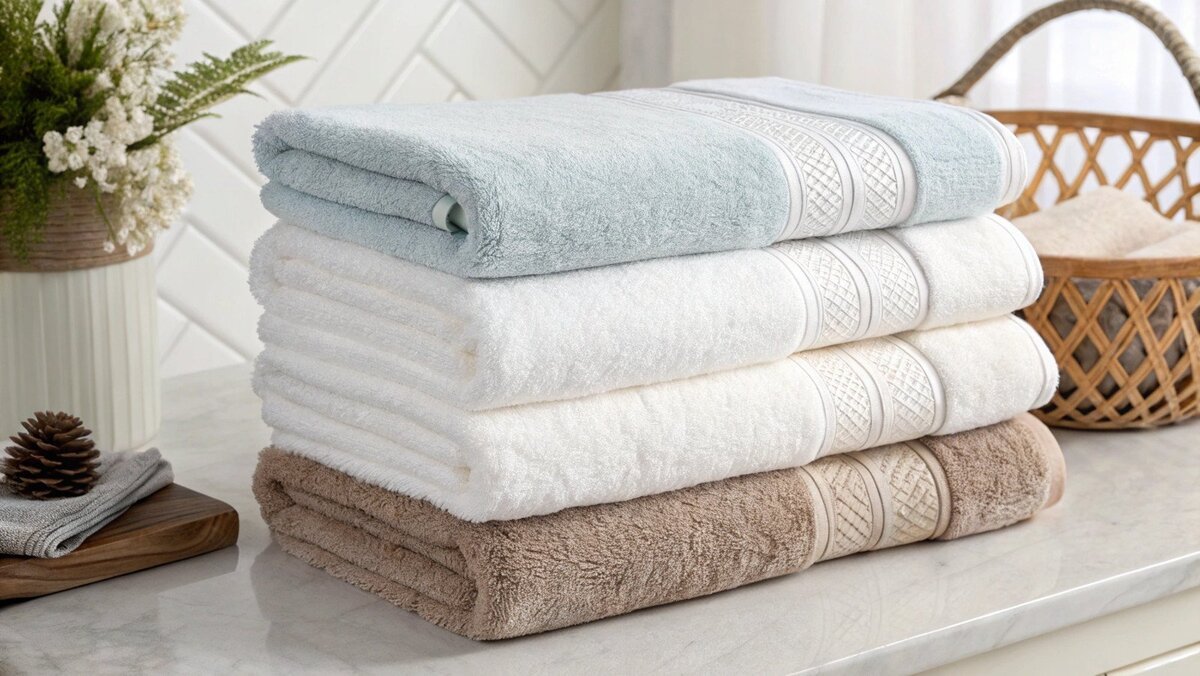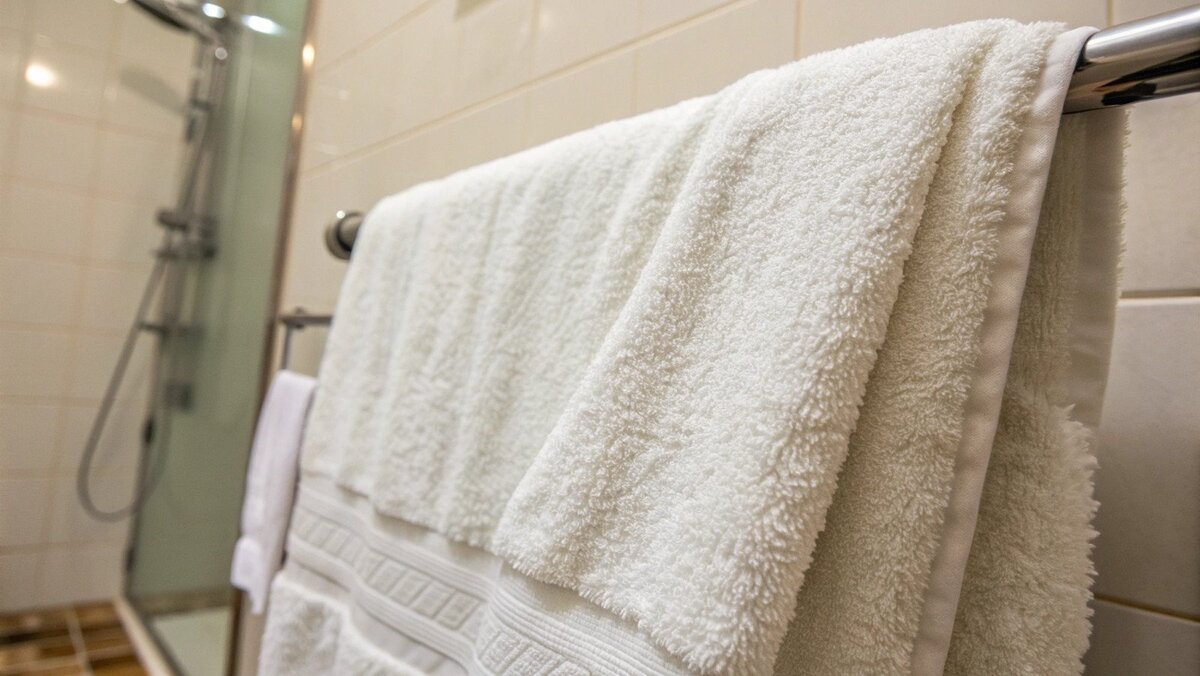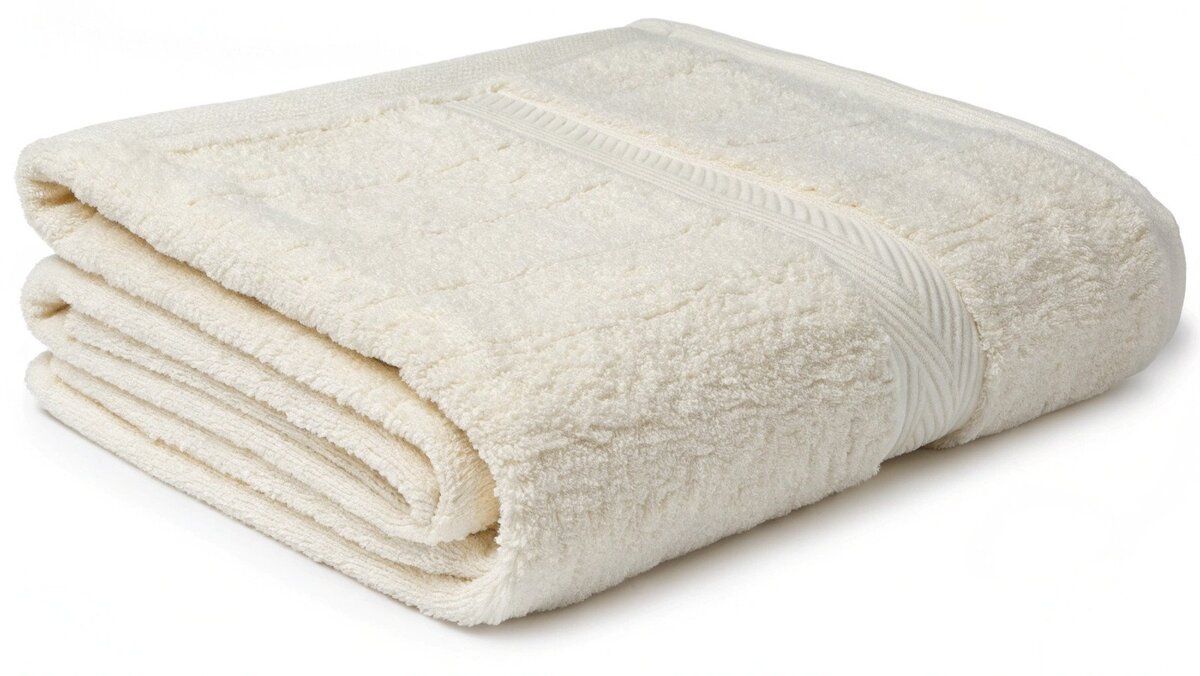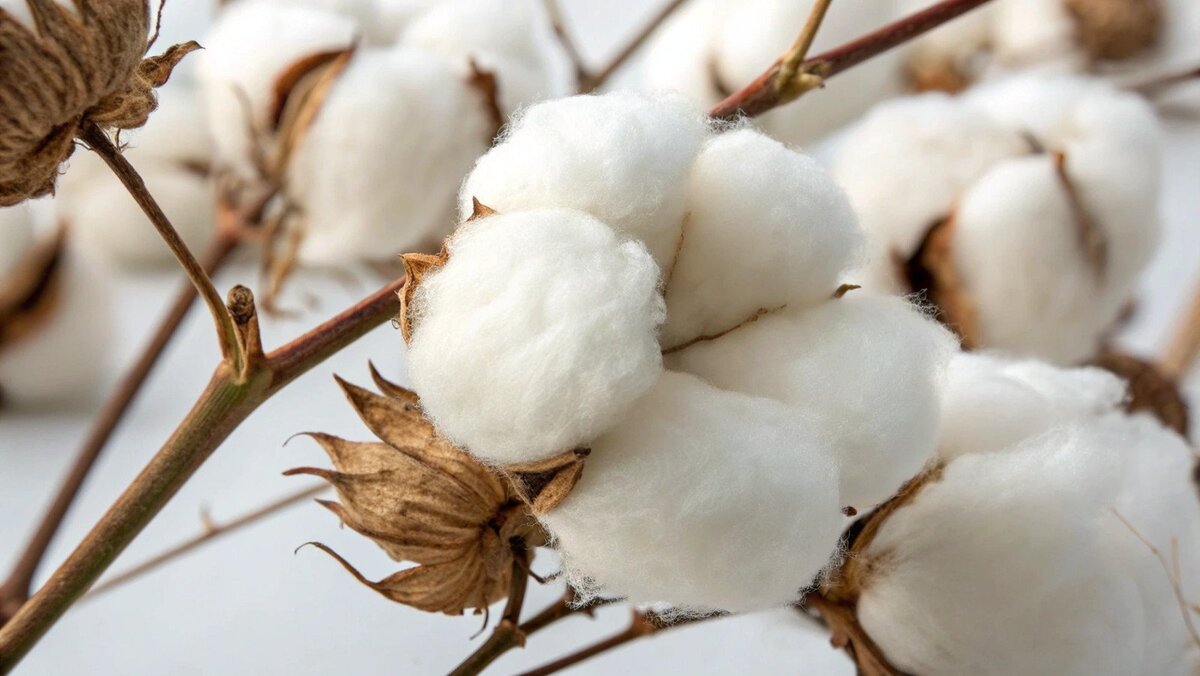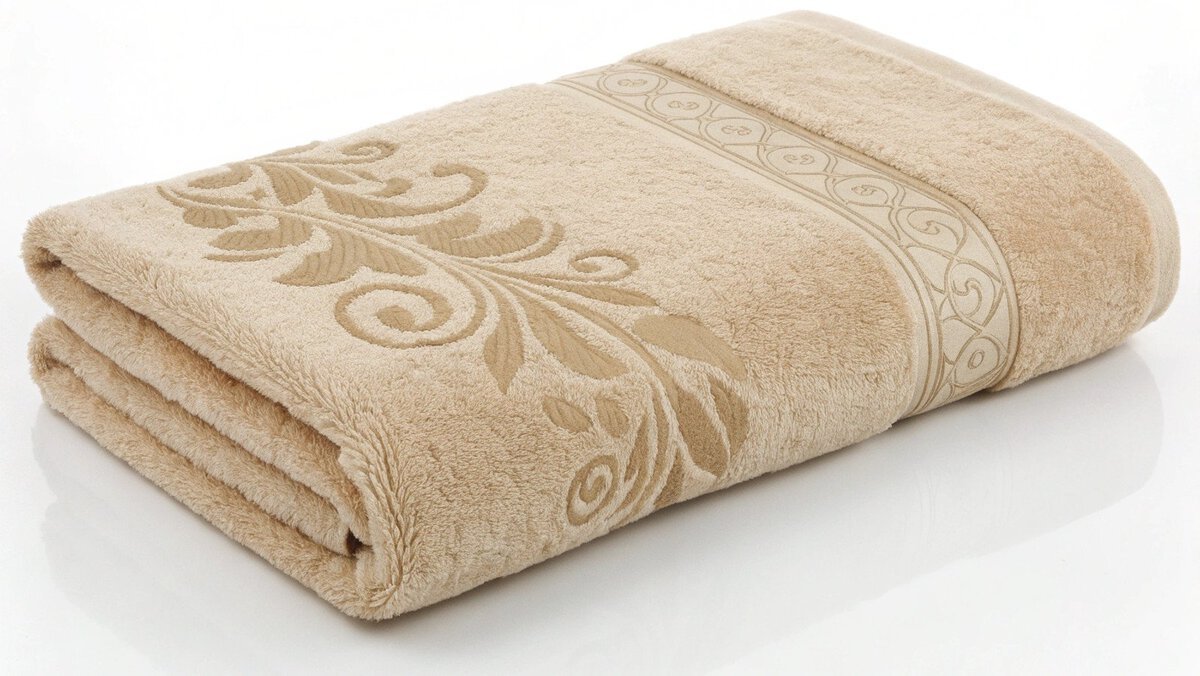Choosing the wrong towel fabric can lead to unhappy customers. A bad choice means wasted money and damaged brand trust. I’ll help you navigate the options.
The best bath towel material is usually high-quality cotton, especially long-staple types like Egyptian or Turkish cotton. These fibers offer the best combination of softness, absorbency, and durability. This makes them a reliable, premium choice for brands focused on quality and customer satisfaction.
Choosing a material is one of the most important decisions you’ll make for your towel brand. This choice directly impacts your product’s performance, feel, durability, and price point. What’s "best" for a luxury hotel might not be best for a fast-drying gym towel. To make a smart choice for your business, you need to understand the differences. Let’s break down the most common materials so you can feel confident in your decision.
What is the best material for bath towels?
You need to select a towel material that customers will love. But the choice between cotton, bamboo, and microfiber can be confusing. Let me clarify which material works best.
For most bath towel applications, cotton remains the top choice due to its natural softness and superior ability to absorb water. However, bamboo is a strong contender for eco-conscious brands, while microfiber is unmatched for sports or travel towels where quick-drying performance is critical.
When I talk with brands, the first question is almost always about fabric. The material defines the towel’s purpose. While cotton is the king of bath towels, understanding the other options helps you target specific markets.
The Main Contenders
-
Algodão: This is the industry standard for a reason. Cotton fibers are naturally hydrophilic, meaning they love water. This makes for a very absorbent towel. It’s also breathable, soft, and durable when you choose the right quality. It’s the safe, reliable choice for any brand focused on home or hospitality.
-
Bambu: Bamboo towels are technically rayon—the pulp is processed and extruded into fibers. They are known for their silky, soft feel and are often praised for being eco-friendly due to bamboo’s rapid growth. They are highly absorbent, sometimes more so than cotton, and have natural antimicrobial properties. However, they can be slightly less durable than premium cotton over many wash cycles.
-
Microfibra: This is a synthetic material, usually a blend of polyester and polyamide. Microfiber towels are engineered for performance. They are incredibly lightweight and can dry in a fraction of the time it takes a cotton towel. Instead of absorbing water like a natural fiber, they work by trapping moisture between their ultra-fine threads. This makes them perfect for sports, travel, and camping.
Here is a simple table to help you compare:
| Recurso | Algodão | Bambu | Microfibra |
|---|---|---|---|
| Absorção | Excelente | Excelente | Bom |
| Suavidade | Muito macio | Macio e sedoso | Functional, Not Plush |
| Velocidade de secagem | Lento | Moderado | Muito rápido |
| Durabilidade | Excelente | Bom | Muito bom |
| Melhor para | Everyday Luxury, Hotels | Eco-Conscious Brands | Sports, Travel, Cleaning |
Is 100% cotton towel the best?
Seeing "100% cotton" on a label sounds like a guarantee of quality, but it’s not. Low-grade cotton can feel rough and fall apart. I’ll explain why it’s more complicated.
A 100% cotton towel is only the best if it’s made from high-quality, long-staple cotton. The length of the cotton fiber is what creates a soft, strong, and absorbent towel. Short-staple cotton produces a weaker, rougher product that sheds lint.
This is a point I stress with every brand we work with at TowelTrend. The term "100% cotton" is used on towels that cost $5 and towels that cost $50. The difference is in the fiber itself.
Understanding Cotton Staple Length
The "staple" is the length of an individual cotton fiber. This single factor has a huge impact on the final product.
-
Algodão de grampo curto: These fibers are shorter, so more of them are needed to spin into a yarn. This creates many fiber ends, which makes the towel feel rougher and more prone to linting and pilling. These towels are less durable and are typically used for budget products.
-
Long-Staple and Extra-Long-Staple Cotton: These fibers are longer and finer. They can be spun into a yarn that is smoother, stronger, and more absorbent. Towels made from long-staple cotton, like Turkish or Pima, feel much softer against the skin and last for years. This is the quality level we focus on for our private label clients because it protects their brand reputation. I once had a client come to us after a disastrous order from another factory. Their "100% cotton" towels were shedding so much lint that they were getting negative reviews. We switched them to a long-staple cotton, and it completely turned their brand image around.
Don’t Forget About Weight (GSM)
Another key factor is GSM, which stands for Grams per Square Meter. It’s a measure of the towel’s density.
- 300-400 GSM: Lightweight, thinner, and quick-drying. Good for the gym or as a simple kitchen towel.
- 400-600 GSM: A perfect medium weight. This range offers good absorbency and softness, making it ideal for everyday bath towels.
- 600-900 GSM: Heavy, plush, and super absorbent. This is a true luxury, spa-quality towel, but it takes much longer to dry.
Is Egyptian or Turkish cotton better for towels?
The debate between Egyptian and Turkish cotton is common for brands aiming for the premium market. Picking the wrong one can lead to performance that doesn’t meet customer expectations.
Egyptian cotton is known for being extremely absorbent and feeling thick and lush, making it ideal for a spa-like experience. Turkish cotton is also very soft and absorbent but dries much faster, offering a great balance of luxury and everyday practicality.
Many of our clients ask me to settle this debate. The truth is, one is not better than the other; they are just different. The right choice depends on the experience you want to provide for your customers.
The Case for Egyptian Cotton
Grown in the Nile River Valley, Algodão egípcio has extra-long staples (ELS). These fibers are famous for their strength and softness.
- Key Trait: Maximum Absorbency. The fibers are incredibly thirsty and soak up water instantly.
- Feel: Exceptionally thick, plush, and heavy. It has that classic, high-end hotel feel.
- Best Use: For brands targeting the absolute peak of luxury. If you want to sell a towel for someone who desires a rich, spa-at-home experience, Egyptian cotton is the answer. The only downside is that its high absorbency means it takes a very long time to dry.
The Case for Turkish Cotton
Algodão turco is grown in the Aegean region and has long staples. While still a premium fiber, its characteristics are slightly different.
- Key Trait: Fast Drying. It’s highly absorbent, but its fibers are slightly less dense than Egyptian cotton’s. This allows air to pass through more easily, preventing the towel from staying damp for too long.
- Feel: Very soft and lightweight. A unique quality of Turkish cotton is that it actually gets softer and fluffier with each wash.
- Best Use: Perfect for everyday luxury and hospitality. For most brands, I recommend Turkish cotton. It delivers the premium feel customers want without the inconvenience of a towel that stays wet and can become musty. It strikes a perfect balance.
| Recurso | Algodão egípcio | Algodão turco |
|---|---|---|
| Absorção | Mais alto | Muito alta |
| Tempo de secagem | Slowest | Mais rápido |
| Sentir | Dense, Plush, Heavy | Soft, Fluffy, Lighter |
| Durabilidade | Excelente | Excelente |
| Melhor para | Pure Luxury, Spa | Everyday Luxury, Hotels |
What fabric should you stay away from?
Using a cheap, unsuitable material is the fastest way to ruin your towel brand’s reputation. Some fabrics simply don’t make good towels, leaving customers with scratchy, non-absorbent products.
You should avoid towels made from 100% polyester or cheap, short-staple cotton. Polyester is not absorbent and just pushes water around your skin. Low-quality cotton will feel rough, shed lint everywhere, and fall apart quickly, leading to bad reviews.
Part of my job is to protect our clients from costly mistakes. Choosing the wrong fabric is one of the biggest. Here are the materials that I strongly advise against for a quality bath towel.
The Problem with 100% Polyester
Polyester is a type of plastic, and it is hydrophobic, meaning it repels water. A towel made entirely of standard polyester will not absorb moisture from your skin. It just smears the water around. It can also trap oils and bacteria, leading to bad smells that are difficult to wash out. The only exception is microfiber, which is a blend of polyester and polyamide fibers that are specifically engineered to trap water. But for a traditional terry bath towel, 100% polyester is a definite "no."
Be Careful with Cotton/Poly Blends
You will often see cotton/polyester blends in the market. Factories use them to lower costs and increase durability, especially for institutional towels used in gyms or hospitals. While a small amount of polyester can make a towel more resilient, it comes at a cost. Every bit of polyester you add reduces the towel’s overall absorbency and soft, natural feel. For a bath towel you’re selling to consumers, the primary function is absorption and comfort. I always recommend sticking with 100% natural fibers like cotton.
Red Flags for Low-Quality Cotton
Not all cotton is good cotton. As we discussed, short-staple cotton is a recipe for a bad product. You can often spot it on a shelf:
- It feels stiff or even abrasive to the touch.
- It feels unusually light for its size (a sign of low GSM and poor construction).
- The price is "too good to be true."
The consequence of selling low-quality cotton is a terrible customer experience. The towel will produce excessive lint in the first few washes, start to pill, and lose its shape quickly. This damages customer trust and ensures they won’t buy from you again.
Conclusão
Choosing the right towel material, like a high-quality long-staple cotton, is vital. It’s the foundation for building a successful, trusted brand that customers will return to again and again.

